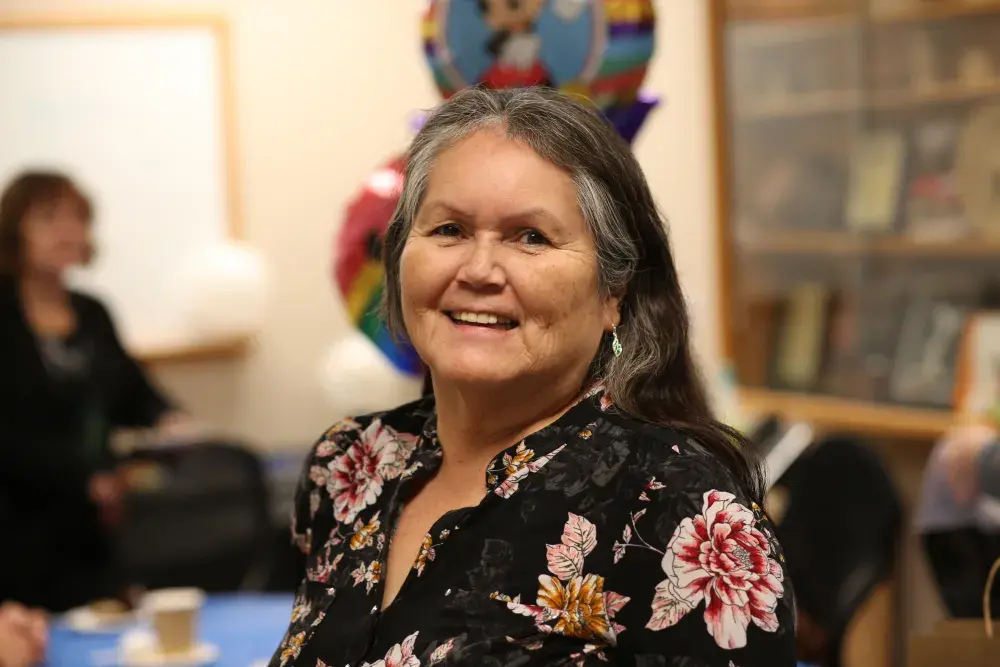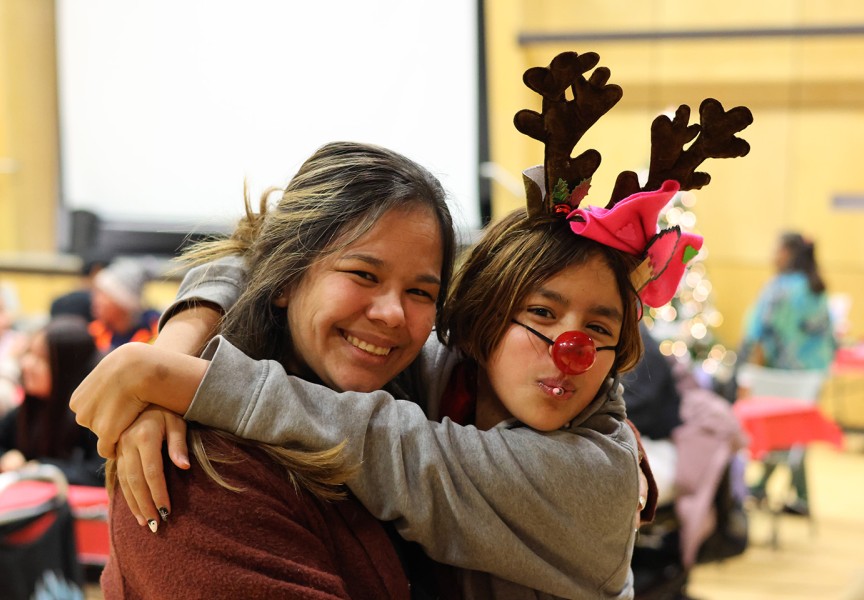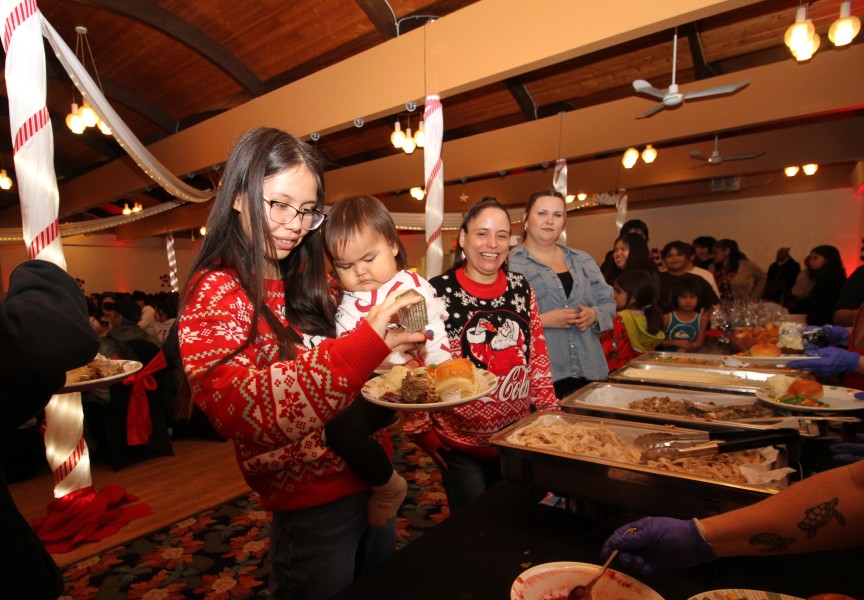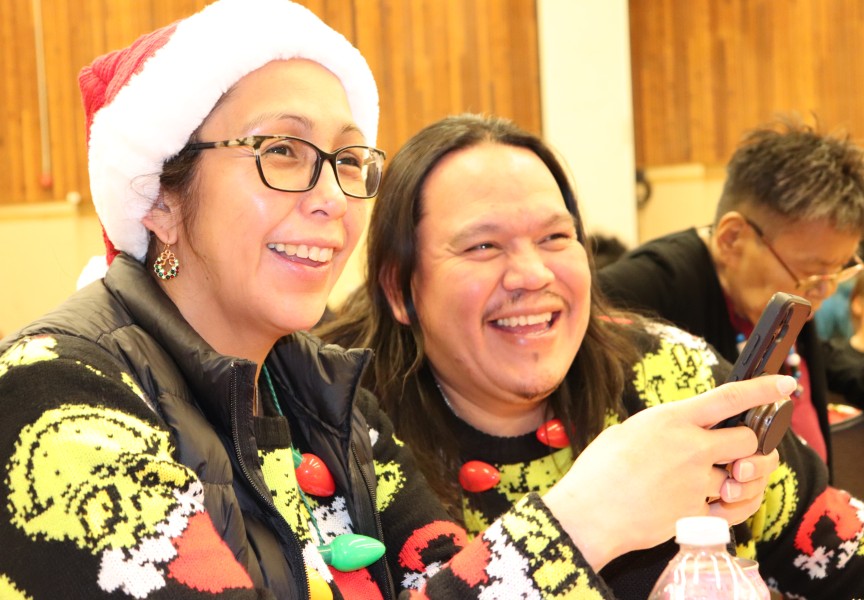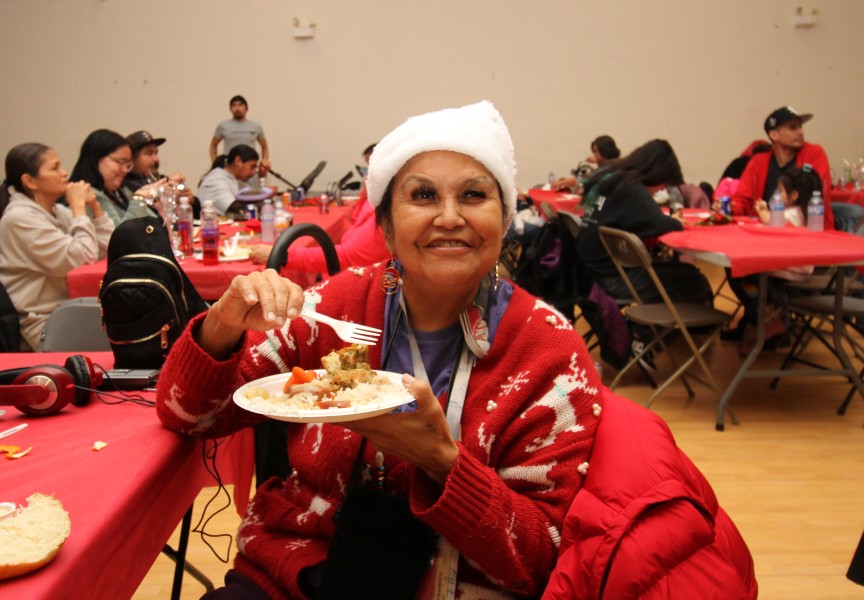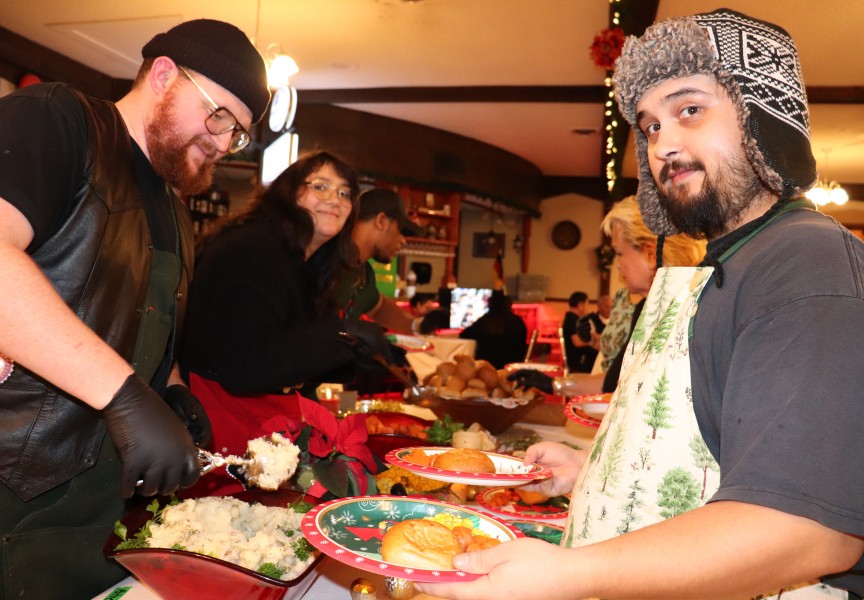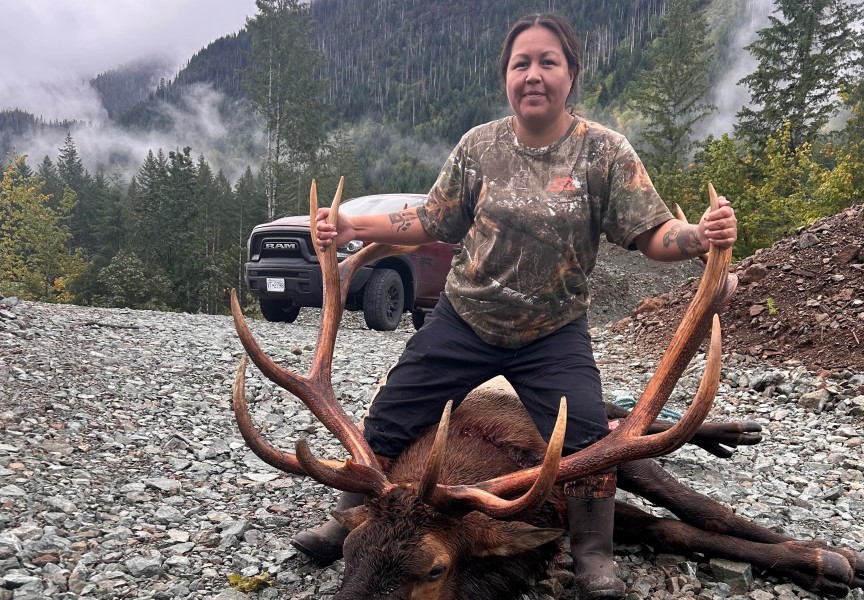Recently retired, Patricia Little looks back on a quarter century with the Nuu-chah-nulth Tribal Council, a period marked by momentous transformations in the administrative world - while the surrounding Port Alberni environment was changing for her growing family.
Little concluded her career with the tribal council in June, after 25 years of working in the non-insured health benefits and accounts payable departments. It was a time of continual upgrading for the Tseshaht member, who only got halfway through Grade 12 as a youth.
“I didn’t finish school because I got married,” recalled Little, who grew up on the Tseshaht reserve.
She had three boys, and when they started in elementary school it became clear to the young mother that more formal education would be necessary if she was to progress her career aspirations.
“I found that going to get a job, you do need your diploma,” said Little, who found a new drive for education while her children were growing up. “It made me focus more on those courses to get it done.”
After getting her high school diploma, part time jobs led to causal work at the Tseshaht band office and the tribal council. Then she applied twice for a position in the NTC’s non-insured health benefits department, getting the job on the second try. At the time the role entailed helping to connect members with vision care, mental health counselling and patient travel benefits available to one and off-reserve Nuu-chah-nulth-aht. She worked closely with Robert Cluett, a Newfoundland transplant who himself retired earlier this year after 26 years with the tribal council.
In these early years all of the tribal council’s 14 nations sent in their members’ monthly patient travel expenses in the form of a disk, mostly by mail.
“With the disks, a lot of the times they came and they were not readable,” recalled Little. “It had to go back to them, get fixed on their end and get sent in again.”
But after about five years this system was transformed when email was implemented. This made things far more efficient, enabling Little to gain a mastery over the reporting process.
“When the nations’ reports, their end dollar amounts, did not match their finance reports, that’s where we had to figure out where it was not correct,” she said. “Over the years, working with those same numbers over and over, I got used to figuring out where the mistake was and if it was out by a certain dollar amount, I knew where to look.”
“I liked to have my reports to the dollar, to match to be correct,” added Little, who studied accounting in the evening at North Island College in her early years at the tribal council. “I liked the challenges. I liked getting over with one challenge and then not too later another one would come up.”
In the last few years of her career office life would be transformed again with the onset of the COVID-19 pandemic in 2020. The tribal council’s clerical staff transitioned to working at home, a practice that, for many, continues to this day.
“It seemed some days I got more done at home,” Little admitted of the work transition.
Meanwhile Little’s children, then grandchildren were going through the school system. She found a different emphasis on formal education than when she was growing up.
“One of my granddaughters, she was living with me, and she just lost interest in school. I got her back in, and because she lived with me, I drove her all the time,” said Little. “She actually graduated this year. She’s the one who had the baby as well.”
Now with five grandchildren and one great-grandson, most of Little’s family lives in Port Alberni, where countless weekends over the years were spent at the hockey rink.
It’s part of the family’s passion for sports, as Little, now 65, continues to play slo-pitch. She also competed in fast-pitch when she was young, followed by years of ball hockey that brought her ladies team to back-to-back national championships in Calgary and Moncton, New Brunswick in the 1980s.
But as she recalls a childhood when she could walk to town alone from her home by the Tseshaht Market, Port Alberni has become a different environment for Little’s grandchildren.
“It’s way different from when I was growing up,” she said. “I won’t let any of my grandkids go out at night, or even during the day, walking by themselves. I make sure that they’re with someone, or if they’re stuck they can phone me anytime to get picked up.”

